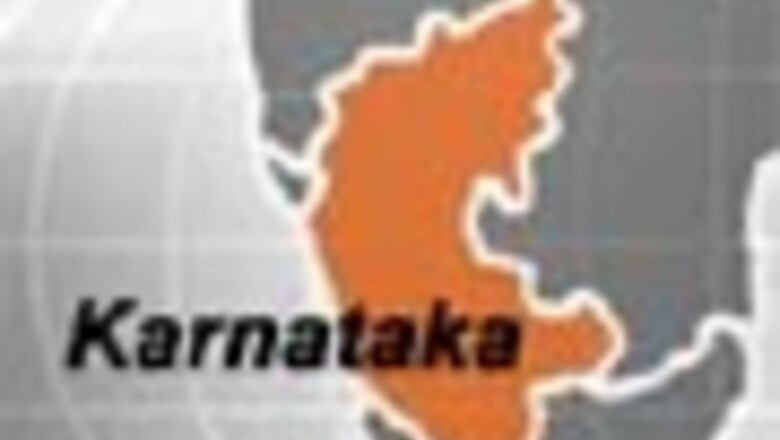
views
The recently-announced Karnataka elections will be held, under the new delimitation rules for the first time. But what is 'delimitation'? How will it impact you, the voter? Senior Anchor H R Venkatesh spoke to National Affairs Editor for that and more in the New Junkie Podcast. Listen away.
H R Venkatesh: Hello and Welcome to the News Junkie Podcast. Today, we're going to find out what this funny word that has entered the world of elections, 'DELIMITATION' means. And why its something you might not want to ignore. With me today, is CNN-IBN National Bureau editor Diptosh Majumdar. Thanks for coming in.
Diptosh Majumdar: Thank you.
H R Venkatesh: First question. Delimitation - what in the name of heavens is this?
Diptosh Majumdar: Now that you've put it so succinctly, delimitation is a very strange word. I've often tried to figure out what its roots are. There is a prefix 'de', 'limit'...in a way it's come to mean redrawing of the boundaries of constituencies. Over a period of time, every 10 years, the union government is supposed to look at the constituencies at the time of the census. But this entire delimitation exercise hasn't been carried out for a long time, it's being done after almost 30 years. Redrawing of boundaries of existing constituencies - both parliamentary constituencies and at the state level, assembly constituencies. That's what it means.
H R Venkatesh: But why was it deemed as necessary, something the government had to do?
Diptosh Majumdar: Well, you see, there's been discrepancies and anamolies in the way the population has been growing, that's been pointed out by local MLAs, for example we've figured out that Outer Delhi constituency, which is one of the largest constituencies in the country, probably THE largest with a population of over 31 lakh, and you have in the same city, Sadar. The smallest constituency may be Lakshadweep, but in Delhi itself there's a constituency called Sadar, which is one of the very small constituencies in a metro. So obviously these are discrepancies, these are differences which the government has wanted to sort out for a long time. That was the specific reason. But again, population has changed. Years earlier...pointed out that particular constituencies are reserved for Scheduled castes and Scheduled tribes, and the SC population may have moved out from there. So as a result, you need a fresh look at the constituencies.
H R Venkatesh: Right, I have a few figures here. Outer Delhi, as you mentioned, represents 31 lakh, that's the population of the people in this constituency and Lakshadweep has just 27,000 people, both account for one seat, so one can understand delimitation is necessary, but there have been a few politicians from South India saying that South India is going to lose out in the number of seats in the overall 543, is that going to happen?
Diptosh Majumdar: Well, this delimitation is being done essentially, by keeping one aspect constant, the total number of seats that has not undergone a change, both at the state level or the central level, we know that parliament has 543 seats. So those are figures which are going to be constant and stagnant actually. And that is essential, because you cannot punish South India for not having multiplied at the rate which North India has been multiplying. If you look at Tamil Nadu, one of the fascinating...not just Kerala, in Tamil Nadu the TFR that is Total Fertility Rate has been 1.48, that is two persons - a couple - are producing 1.8 children, whereas if you go to Bihar, it's above three. It's almost touching 4 in Uttar Pradesh, even in today's India. So when population is growing at such a disparate rate, in different parts of the country, you cannot change the number of constituencies, then you'll punish a particular state for having done so well, you know Tamil Nadu, you cannot reward UP for producing more.
H R Venkatesh: Well, some politicians don't have much reason to smile...
Diptosh Majumdar: Some very unhappy politicians, but you have to make differences among them. Say for a politician like L K Advani who may lose out his Gandhinagar in Gjuarat and Lalu Yadav, they have acquired some kind of political stature in their career. Lalu Yadav we know can fight from any constituency...not just Chapra, he also fights from places like Madhubani - two, three different constituencies that he fights from. Similarly, you will notice that L K Advani can get elected from anywhere he wants to. In fact, Vajpayee at a point in time used to fight from four different states in different elections.
H R Venkatesh: One final thought here Diptosh. In India they say, people don't cast their votes, they vote their castes. That's not going to change?
Diptosh Majumdar: Not going to entirely change. But there will be change at the ground level, constituency-wise. Probably the volume, the impact would remain the same, but geographically there might be changes. For example, if there was a particular caste combination favouring a particular caste in a particular constituency, that would shift to some other constituency. Maybe overall it will remain the same. Mayawati or Mulayam Singh Yadav will they continue to depend on caste arithmetic? Yes, they will, no large changes there. But at specific constituencies, there may be changes.
H R Venkatesh: All right Diptosh. It was a tough topic and we tried to sex it up. Hope we've succeeded for the listener out there.
Diptosh Majumdar: Yeah but I still don't know how the word 'delimitation' was derived!
H R Venkatesh: Good note to end this. Thanks very much.
Diptosh Majumdar: Thank you.

















Comments
0 comment